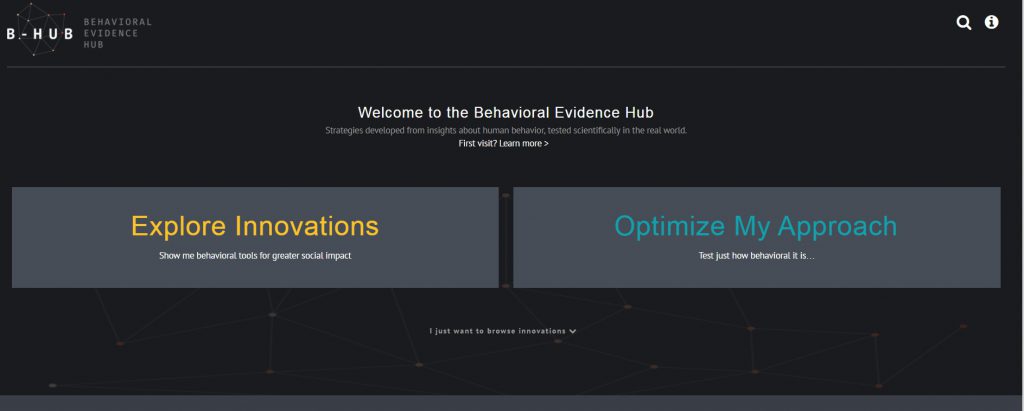Summary:
Guest post by Jeff Mosenkis of Innovations for Poverty Action. Chris Blattman had a nice interview with Stephen Ladek of the Terms of Reference podcast (iTunes). Chris talked about his approach to what RCTs are good for – less about that specific program but more about testing our assumptions behind the mechanism through which something might work. They also get into how he got started studying conflict and resolution (because someone offered to let him borrow some Land Rovers), but why he’s now putting his money on that as the enduring question of development. Yesterday IPA and ideas42, with Penn’s Center for Health Incentives & Behavioral Economics and Harvard’s Behavioral Insights Group, launched a new website to make nudge-style behavioral interventions easy for non-researchers to
Topics:
Jeff Mosenkis (IPA) considers the following as important: Africa, census, China, development, Economics, links, methods, miscellany, news, podcast, podcasts, Research, Uganda, violence
This could be interesting, too:
Guest post by Jeff Mosenkis of Innovations for Poverty Action. Chris Blattman had a nice interview with Stephen Ladek of the Terms of Reference podcast (iTunes). Chris talked about his approach to what RCTs are good for – less about that specific program but more about testing our assumptions behind the mechanism through which something might work. They also get into how he got started studying conflict and resolution (because someone offered to let him borrow some Land Rovers), but why he’s now putting his money on that as the enduring question of development. Yesterday IPA and ideas42, with Penn’s Center for Health Incentives & Behavioral Economics and Harvard’s Behavioral Insights Group, launched a new website to make nudge-style behavioral interventions easy for non-researchers to
Topics:
Jeff Mosenkis (IPA) considers the following as important: Africa, census, China, development, Economics, links, methods, miscellany, news, podcast, podcasts, Research, Uganda, violence
This could be interesting, too:
Lars Pålsson Syll writes Schuldenbremse bye bye
Lars Pålsson Syll writes What’s wrong with economics — a primer
Lars Pålsson Syll writes Krigskeynesianismens återkomst
Lars Pålsson Syll writes Finding Eigenvalues and Eigenvectors (student stuff)
Guest post by Jeff Mosenkis of Innovations for Poverty Action.
- Chris Blattman had a nice interview with Stephen Ladek of the Terms of Reference podcast (iTunes). Chris talked about his approach to what RCTs are good for – less about that specific program but more about testing our assumptions behind the mechanism through which something might work. They also get into how he got started studying conflict and resolution (because someone offered to let him borrow some Land Rovers), but why he’s now putting his money on that as the enduring question of development.
- Yesterday IPA and ideas42, with Penn’s Center for Health Incentives & Behavioral Economics and Harvard’s Behavioral Insights Group, launched a new website to make nudge-style behavioral interventions easy for non-researchers to access and understand. It’s called the Behavioral Evidence Hub, www.bhub.org, and has easy to browse and skim explanations of programs that have worked in the past and the principles they use. It’s also got checklists for designing new programs drawing on evidence from past studies.
- We’re still collecting examples of rigorously tested behavioral interventions. If you know of good candidates, please submit them on the site.
- People seem optimistic about the new USAID administrator nominee, Mark Green.
- It might get lost amidst a higher-profile departure this week, but the U.S. Census director resigned, and that’s really important.
- For the geeks, a really nice discussion on the Development Impact blog on list randomization, and how to get respondents to tell the truth about very personal things like HIV status.
- From Uganda, a new comedy film about two guys who try to make money starting an NGO.
- If you want an update on the “China’s great/terrible for Africa” debate, China doubled its investment in Africa in 2016 as the U.S. and the U.K. were pulling back, and is the biggest foreign direct investor in Africa. A long read from the NYTimes Magazine profiles an engineering project in Namibia and questions the China good/bad dichotomy. It’s complicated, and the relationships and markets are maturing and changing the dynamic.
If the census bureau can’t get their digitization act together in time, they may want to hire this guy. The best data entry person in the world may be working in a gas station convenience store, where he’s been taking inventory for 30 years.
